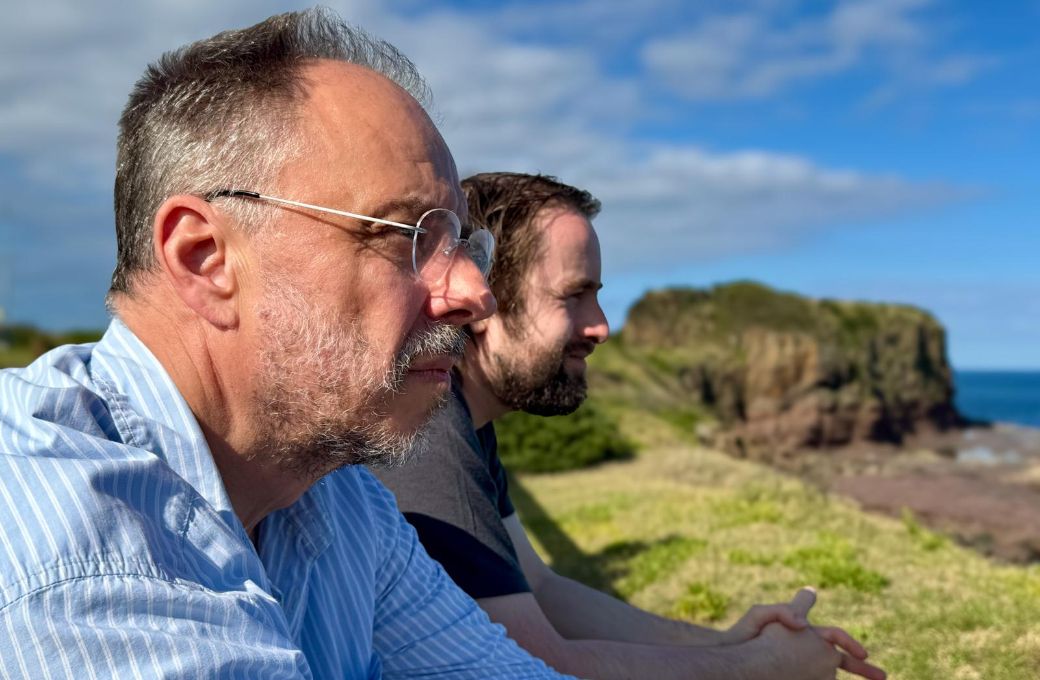The lights in Koerner Hall remained ever so slightly undimmed, allowing the audience to follow the text. Yet it took only a few piano chords and the mournful vocal descents of Gute Nacht for the music to draw its own veil and for darkness to gather – text, or not text. For the next 70 minutes, time seemed suspended, the hall held in a fragile space where sound became thought. Only the occasional subdued gasp from a fellow listener broke the spell, as if all breath had been claimed by the solemn power of the journey.

Few works demand more of performer and listener than Winterreise, Schubert’s stark diary of grief and loss, the wanderings of a man rejected by love, trudging through frozen memories until outer landscape and inner turmoil merge. Matthias Goerne and Daniil Trifonov approached the cycle not so much as narrative, as psychological excavation: each song a step into the anatomy of existential estrangement, a study in the unravelling of a mind.
Goerne is no stranger to the cycle, having performed it worldwide and recorded it twice. In Toronto with Trifonov, his Winterreise was pared to the raw essentials. Words and music flowed as one, the crisp consonants of Dietrich Fischer-Dieskau exchanged for something more legato, more inward. His voice – darker in the lower register, more fragile aloft – was veneered by the patina of experience, unsmooth transitions becoming cracks that revealed not the singer’s, but the traveller’s vulnerability.
Goerne’s physicality – the averted gaze into the piano, the restless pacing, the contorted limbs and eloquent hands – embodied a mind in perpetual motion, haunted and haunting. This traveller no longer raged at the slings and arrows; he was Lear on the heath, stripped to his bewildered essence, wandering through the wreckage of his own psyche.
Trifonov, astonishing in his subtlety and control throughout, was no mere accompanist but a companion of Fate; at times the sturdy staff on which the weary wanderer leans, at others the inner voice that urges, comments, provokes. Part Cordelia, part Fool, both the quiet truth-teller and the conscience, perceptive, yet never indulgent. His tone glowed warmly beneath the frost, threading colour and texture through the desolate landscape.
Frühlingstraum, that cruel dream of unrecoverable spring, emerged as the cycle’s most poignant jewel. Trifonov’s opening phrase was like a window to air and light, opened only for the traveller to recoil, scorned by the laughter of others. No imitation of birds here, only the stillness of despair. Goerne’s tone thinned to transparency; the piano, infinitely tender, seemed to cradle him in consolation.
Boundaries between dream and waking grew ever thinner as the traveller approached Der Wegweiser and the last quarter of the cycle. Trifonov’s stillness was like death gazing back. Here was the only moment Goerne and he took a long pause. By Das Wirtshaus, the piano was distant, grave, holding the voice as though by the hand. In Mut!, the traveller’s last gasp burst forth in manic defiance. Finally, in Der Leiermann, Goerne invited the hurdy-gurdy player – like a spectral twin – to share his solitude. Trifonov’s hollow fifths sounded glacial, bereft of resonance, as if the piano itself was fading into silence, leaving the wanderer bereft, beyond the world of sound, his only consolation. “We two alone will sing like birds i’ th’ cage,” as Lear put it, accompanying Cordelia to prison.
The final hush in Koerner Hall was not so much applause deferred as breath withheld, as if to move, to break the silence, would undo the fragile truths the two astonishing artists had revealed on Schubert’s behalf.


